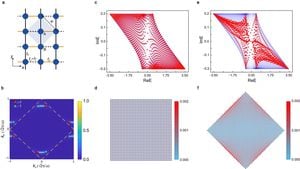The Trump administration has launched aggressive moves to dismantle the U.S. Agency for International Development (USAID), America’s primary vehicle for foreign aid, signaling significant changes for the country’s humanitarian efforts. Over the past few weeks, the administration has placed nearly all Washington-based USAID staff on paid administrative leave, removed key security personnel, and suggested shifting the agency’s operations under the State Department.
Reports suggest the abrupt staff changes took place after representatives from Elon Musk’s newly formed Department of Government Efficiency (DOGE) threatened USAID security officers to gain access to restricted areas. Senate Democrats confirmed personnel from DOGE entered the agency’s headquarters without security clearances, leading to the removal of the agency's security director, John Voorhees, and his deputy.
“No classified material was accessed without proper security clearances,” asserted Katie Miller, spokesperson for DOGE, following the uproar surrounding the incident. This comment, aimed at mitigating concerns about the data accessed during these security breaches, does little to allay legal fears surrounding the actions taken by the Trump administration.
Lawmakers have been vocal about the potential consequences of reducing USAID’s autonomy, voicing concerns over the legality of Trump's actions. Senator Jeanne Shaheen of the Senate Foreign Relations Committee formally requested explanations from Secretary of State Marco Rubio, who has been tasked with overseeing the agency since its proposed merger with the State Department. Meanwhile, House Foreign Affairs Committee Chair Brian Mast supported the shift, promoting increased oversight with the remark: “There needs to be more command and control.”
Trump has consistently criticized foreign aid, declaring it riddled with corruption and waste. Following this sentiment, Musk echoed similar views, labeling USAID as “a criminal organization” on social media. He went so far as to claim he “spent the weekend feeding USAID through the wood chipper,” indicating his intent to eliminate the agency entirely.
This merger consideration has provoked significant concern among bipartisan lawmakers and humanitarian organizations alike, as the agency has historically played pivotal roles worldwide, especially during crises. With the U.S. providing $72 billion to 180 countries, the abrupt changes to USAID have raised alarms about potential disruptions to humanitarian programs, particularly those related to public health, energy security, and anti-corruption efforts.
USAID has been integral to many global initiatives, especially those aimed at mitigating the effects of the Russian invasion of Ukraine, where the agency has supplied over $2.6 billion in humanitarian assistance alone. The amplifying hostility toward the agency is seen by many as not only risky for global humanitarian efforts but also detrimental to U.S. interests abroad.
“Gutting [USAID] means gutting our ability to compete and keep America safe,” emphasized Senator Andy Kim, who previously worked for USAID, highlighting the inherent risk of such sweeping changes. Critics argue this move undermines the strategic partnerships and collaborations the U.S. has cultivated globally, especially with nations facing urgent humanitarian challenges.
Adding to the chaos, the transition to DOGE has been characterized by confusion and disarray within USAID. Thousands of employees, particularly those working on the front lines of humanitarian efforts, received notices of administrative leave and were barred from accessing USAID systems. While some staff members are still available for mission-critical functions, the abrupt nature of these changes has left many uncertain about their future and the agency’s direction.
The past few weeks have demonstrated how intertwining politics and humanitarian aid can yield formidable consequences, with repercussions felt both at home and abroad. Critics have warned the administration's blanket freeze on foreign assistance, which Secretary Rubio attempted to mitigate but left ambiguous, could damage the effectiveness of programs across the globe.
The potential elimination of programs could embolden adversarial nations like China and Russia, stepping in to fill gaps left by reduced U.S. engagement. This not only erodes the U.S.'s longstanding role as the world’s leading humanitarian donor but raises doubts about its commitment to international collaboration on pressing global issues like climate change, health crises, and economic stability.
Economically, the ramifications may extend far beyond government borders. A review of budget allocations indicates foreign aid comprises only 0.7 percent of total U.S. spending. The proposed cuts present significant follow-up costs, especially as humanitarian crises escalate worldwide. The urgency of aid dependably depends on U.S. funding reforms rather than freezes.
These sweeping tactics employed by the Trump administration not only challenge the foundation of U.S. foreign aid policy but highlight the chaotic approach to governance. Such actions endorse shortsighted priorities favoring wealth consolidation over responsibility to foreign partnerships and humanitarian duties. The path forward necessitates reinstilling USAID’s independence, restoring comprehensive aid strategies, and ensuring continued U.S. leadership on the global stage.
With potential legislative backlash brewing and legal challenges looming, the administration faces mounting pressure to justify its motives, align with constitutional principles concerning Congress's budgetary powers, and reconsider the long-term strategy around necessary international engagement. Walking away from the commitments not only costs lives but also prospects of helping millions worldwide.



